Federal Police boss defends raids on media, could still prosecute journalists
The head of the Federal Police has denied raids on journalists in the past two days were intimidation and has shot down questions on the timing of search warrants on the ABC and a News Corp reporter.
- PM refuses to condemn raid on News Corp journalist
- Annika Smethurst raid was more than an invasion of privacy
Federal police have defended two raids on journalists as “independent and impartial” amid national and international condemnation of the operations as impinging on free speech.
AFP officers raided ABC headquarters on Wednesday over stories published in 2017 that suggested Australian troops may have committed war crimes.
The raid came a day after the AFP searched the home, computer and mobile phone of News Corp journalist Annika Smethurst over a story she wrote last year detailing an alleged government proposal to spy on Australians.
Acting AFP commissioner Neil Gaughan said the two separate investigations had been under way since April 2017 and April 2018 respectively. “I need to emphasise in the strongest possible terms that not the government nor any minister has directed the actions of these investigations,” Mr Gaughan said.
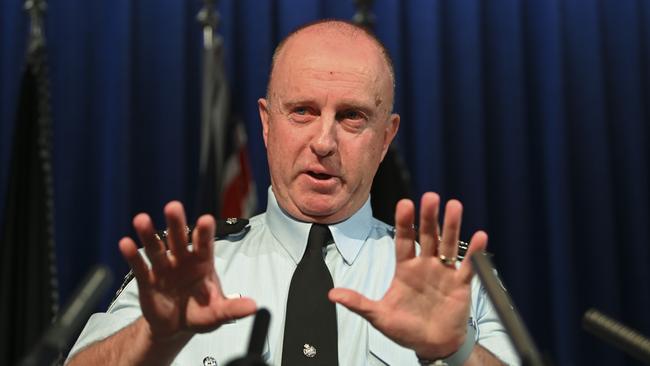
However, he said as a “standard practice”, the AFP had notified the Home Affairs Minister Peter Dutton’s office it was investigating the matters at the time the matters were referred to the AFP.
“We did not provide regular updates on operational activities, nor did we tell them we have obtained search warrants and planned to execute these warrants,” he said.
He said it was not unusual for search warrants to be executed in such investigations.
“No sector of the community should be immune to this type of activity or evidence collection more broadly,” he said.
“This includes law enforcement itself, the media, or indeed, even politicians. There are criminal allegations being investigated and we cannot ignore them.
“We are duty bound to conduct these investigations impartially and thoroughly.”
He rejected claims the AFP was trying to intimidate journalists and refused to rule out prosecuting reporters.
Mr Gaughan also shot down questions about the timing of the raids which happened so soon after the Coalition’s election win.
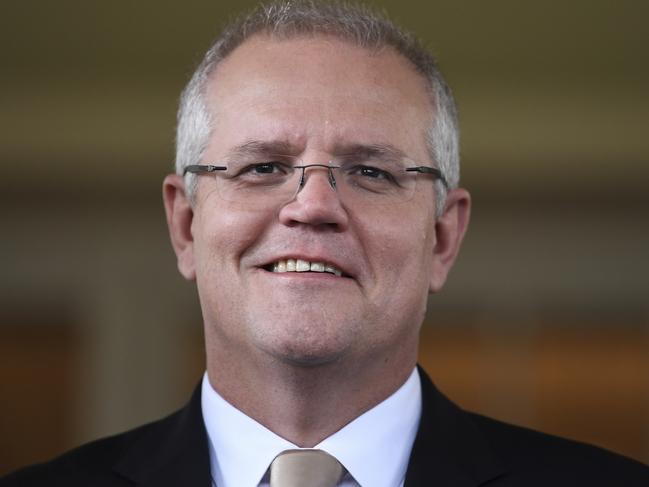
“The timing of these investigations or these activities was influenced only by the progress of the investigation to date, and sufficient information being available to support the application of a search warrant,” he said.
“Any inference that suggests our decisions were influenced by anyone outside the organisation is strongly refuted.”
Mr Gaughan’s remarks come hours after Peter Dutton defended the two raids.
“The leaking of these documents is a serious issue,” Mr Dutton told Sydney radio station 2GB.
“The police have an obligation under law to independently investigate the matter”.
International press freedom organisations have condemned the raids, warning “press freedom is under assault in Australia” and predicting a further drop from Australia’s already low position at No. 21 on the World Press Freedom Index.
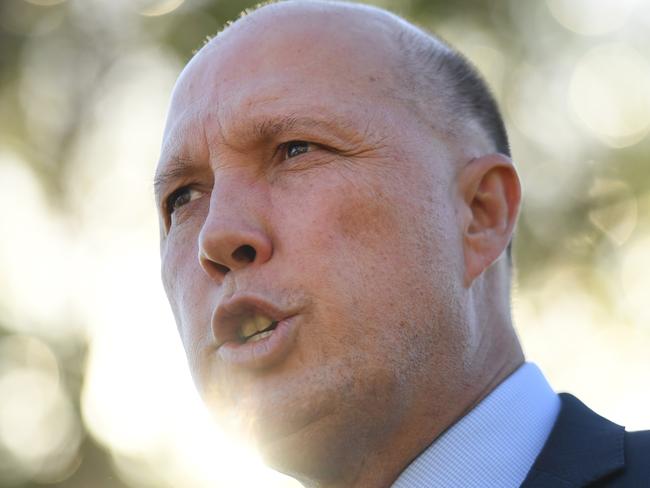
Prime Minister Scott Morrison yesterday opened the door to discussions on changes to media laws after the raids.
“If there are issues regarding particular laws they will be raised in the normal way that they should be in a democracy,” he said. “They are matters I am always open to discuss as any prime minister would be.
“But I think it’s important to understand what is occurring here and that is a process of investigations being pursued by an independent law enforcement agency and they are acting in accordance with the laws that govern their behaviour, and that is done at arms length from the government, this is not a matter that has been directed or in any way involves government ministers and it would be inappropriate if it did.”
Mr Morrison defended Home Affairs Minister Peter Dutton, saying he hold no knowledge of the raids before they happened.
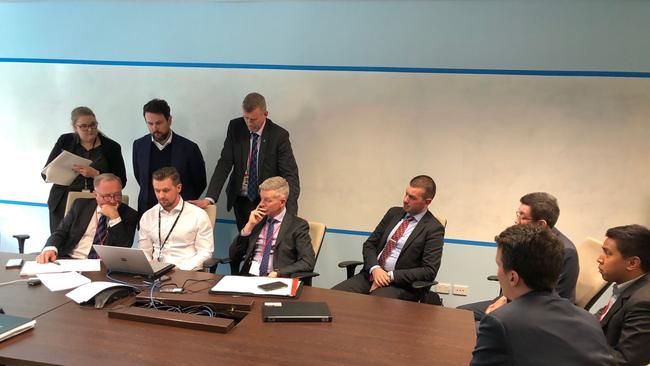
Earlier, Home Affairs Minister Dutton looked to separate himself from the raids on Wednesday, saying: “I have had no involvement in the AFP’s investigation into these matters.”
He said his office was only informed after the raids had taken place. But just how close he is to the AFP was underscored by his statement that the AFP would soon be issuing a release to back him up.
Moments later it dropped: “The AFP can confirm the Minister for Home Affairs was not notified prior to the execution of the warrants.”
The AFP confirmed the raids stemmed from “two separate referrals from agency heads” linked to the leak of documents from the Defence Department. It is understood the referrals came from Greg Moriarty, secretary of the Department of Defence, and Chief of the Defence Force Angus Campbell.
Tuesday’s warrant on Sunday Telegraph political editor Annika Smethurst allowed AFP officers to search for material linked to a leaked story about a secret plan to spy on Australians. The warrant served on the ABC allowed officers to search for leaked material relating to a story on the killing of civilians by Australian Special Forces in Afghanistan.
It is not known when the previous defence minister Marise Payne or any government minister was told about the referrals.
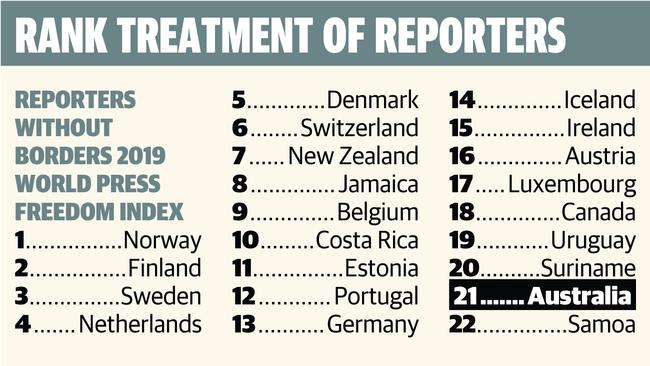
In London to celebrate the anniversary of the Normandy landings — a battle that was fought for democracy — PM Scott Morrison was quizzed about the first raid and said “it never troubles me that our laws are being upheld”.
Michael Miller, executive chairman of News Corp Australasia — publisher of The Daily Telegraph — said: “We are disappointed in the government's response dismissing the AFP raid on the home of News Corp journalist Annika Smethurst.
“That raid involved seven police officers arriving unannounced at her home early morning, and seven hours searching through her personal belongings … The raid was unequivocal intimidation.
The AFP can confirm there is no link between the execution of search warrants in the ACT suburb of Kingston yesterday (4 June 2019) and those on the Ultimo premises of the ABC today (5 June 2019). Full statement here:https://t.co/LYvVP6wfq3
— AFP (@AusFedPolice) June 5, 2019
“It was an affront to press freedom and demonstrated an alarming escalation to silence those who publish truths the government does not want made public.
“We stand by Annika and we will not resile from our campaign to protect the public’s right to know about important decisions governments are making that can and will impact ordinary Australian citizens.
“Equally, we support the ABC’s concerns over freedom of the press and proper public scrutiny of national security and defence matters.”
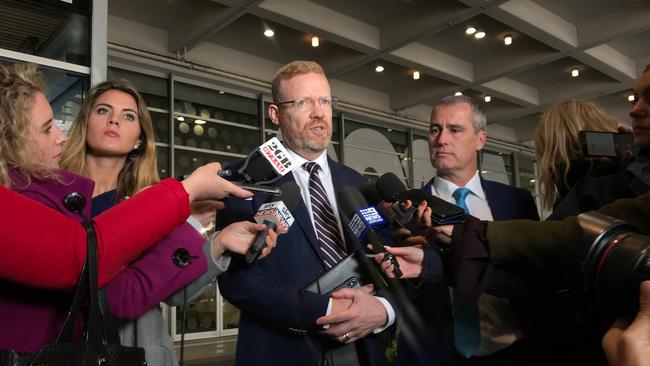
AFP HITS ABC IN WAR ON TRUTH
A top ABC staffer was “staggered” by the Australian Federal Police warrant executed in yesterday’s raids which he condemned for granting officers the power to “add, copy, delete or alter” material in the public broadcaster’s computers.
ABC head of investigative journalism John Lyons made the revelation as he live-tweeted the second raid on a media organisation in two days after three AFP officers and three police IT technicians marched into the broadcaster’s Ultimo headquarters yesterday.
The warrant regarded a search on the broadcaster’s hard drive for material linked to its 2017 series, The Afghan Files, based on leaked documents from a defence force insider about the killing of civilians in Afghanistan.
It came a day after seven AFP officers spent seven hours searching the Canberra home of Sunday Telegraph political editor Annika Smethurst for material relating to a leak about a secret plan to spy on Australians.
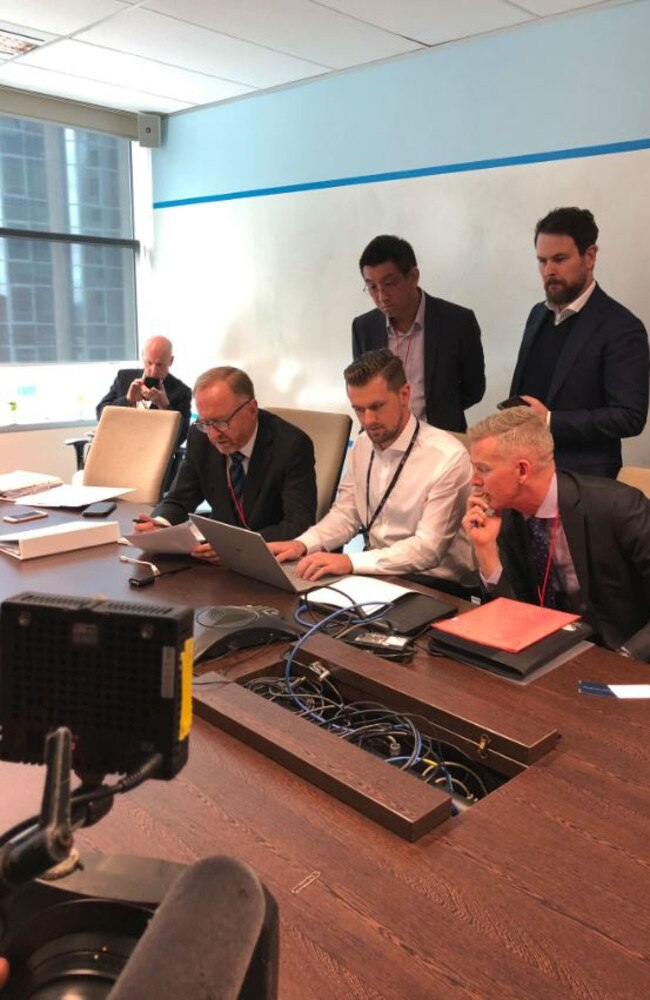
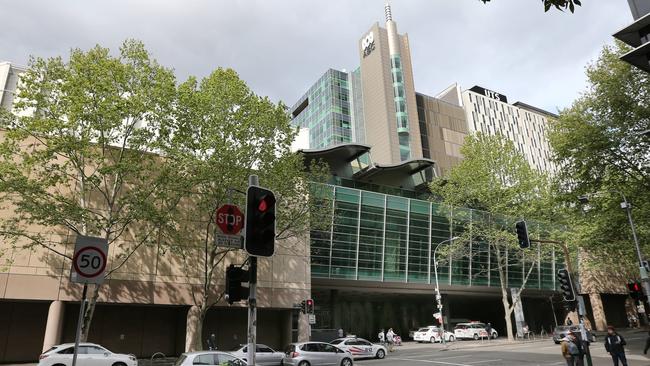
The ABC warrant allowed the AFP to identify 9214 documents that they then began to go through with ABC lawyers to see what could be taken. Mr Lyons reported every move of the AFP raid on Twitter after it began before noon.
“I have to say, sitting here watching police using a media organisation’s computers to track everything to do with a legitimate story I can’t help but think: this is a bad, sad and dangerous day for a country where we have for so long valued — and taken for granted — a free press,” he tweeted.
RELATED
Annika Smethurst raid was more than an invasion of privacy
Shades of Big Brother as cybersecurity vision comes to light
“I’m still staggered by the power of this warrant. It allows the AFP to ‘add, copy, delete or alter’ material in the ABC’s computers. All Australians, please think about that: as of this moment, the AFP has the power to delete material in the ABC’s computers. Australia 2019.”
ABC editorial director Craig McMurtrie said: “They have a warrant that allows them to access emails, electronic files, files and reports around the Afghan Files … that examines very serious allegations around the Special Forces.
“We knew they were coming but they were not invited.”
It became clear the police officers were looking for evidence to build their case against the whistleblower who provided the documents that were the basis of the story.
“From sitting in this room it’s clear that the AFP is trying to gather evidence to build a case against one particular person,” Mr Lyons tweeted.
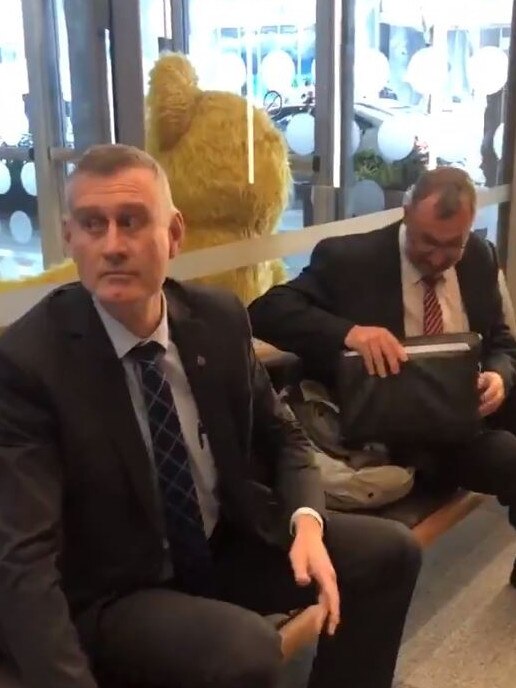
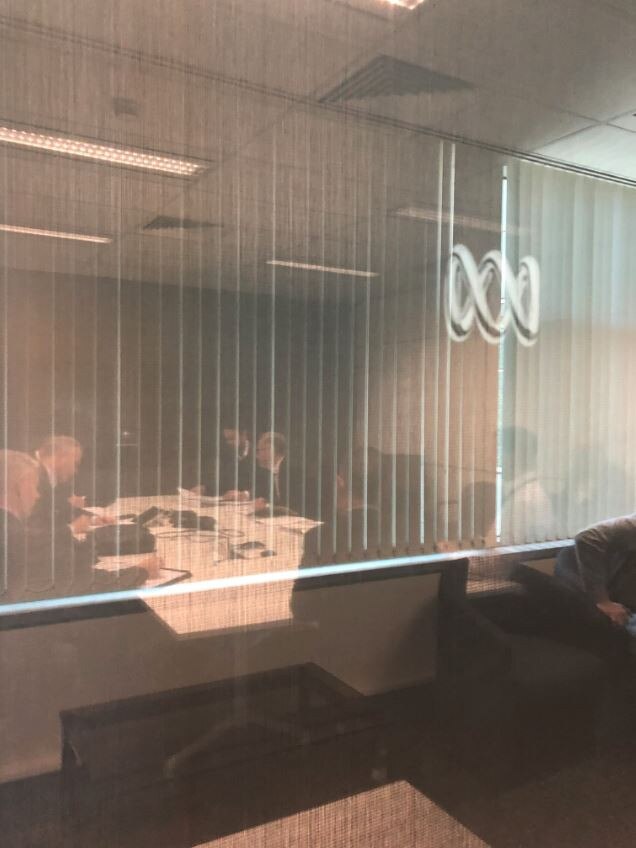
Top of the list of people mentioned on the warrant is David McBride, a former defence force lawyer who has been charged with releasing classified material to three ABC journalists. Two of those journalists, Dan Oakes and Sam Clark, were mentioned on the warrant and wrote the Afghan atrocity stories.
Media Watch presenter Paul Barry said the “absolutely outrageous” raid had been conducted under old powers enshrined in the 1914 Crimes Act which give no exemptions to journalists for publishing stories based on leaked documents.
The law was changed in 2018 to give a public interest exemption to journalists. However the raids relate to two stories published before the law was changed.
Media Entertainment and Arts Alliance president Marcus Strom said: “A second day of raids by the Australian Federal Police sets a disturbing pattern of assaults on Australian press freedom. This is nothing short of an attack on the public’s right to know.
“It is equally clear that the spate of national security laws passed by the parliament over the past six years have been designed not just to combat terrorism but to persecute and prosecute whistleblowers who seek to expose wrongdoing”.
HOW THE RAIDS WERE COVERED AROUND THE WORLD
The BBC, CNN and New York Times are among a handful of media organisations to report on the actions of AFP officers in the past three days.
The UK national broadcaster released a statement of support for its Australian counterpart, slamming the AFP’s raid on the ABC as an “attack on press freedom”.
BBC News Australia editor Jay Savage called the timing of the two raids concerning stories published more than a year ago “curious” while noting there were “calls for an urgent inquiry into press freedom”.
The raids also garnered attention in the US with The New York Times, CNN and Columbia Journalism Review picking up the story.
In a news analysis published in The New York Times, journalist Damien Cave questioned whether Australia was the “World’s most secretive democracy”.
“Australia stands out. No other developed democracy holds as tight to its secrets, experts say, and the raids are just the latest example of how far the country’s conservative government will go to scare officials and reporters into submission,” Mr Cave wrote.
The Columbia Journalism Review, a US publication for journalists, said the raids were “troubling” while pointing out the civility of AFP officers ordering coffees while raiding ABC headquarters.
“They downloaded a trove of files and — after taking a delivery of coffee and sandwiches — started to go through them on a big screen in ABC’s offices,” Jon Allsop wrote.


